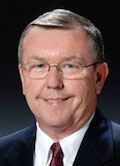Celebrate with Staff as a Challenging Year Ends
By Ronald Williamson and Barbara R. Blackburn

Ronald Williamson
It’s April and many schools just finished Spring Break. But for school leaders April marks the beginning of one of the busiest times of the school year. There are often end-of-year tests to administer, activities and gatherings to attend, and the first steps toward planning the next school year.

Barbara Blackburn
This year, perhaps more than any other in our memories, has been ultra-challenging in many schools. The continued pandemic and associated health requirements and parent and community unrest about curriculum and instruction – as well as the need to accommodate students and families who choose online instruction over face-to-face – have stretched resources and resilience among teachers and administrators.
Could this be a time to celebrate?
One characteristic of a school’s culture is the way success is celebrated and acknowledged. Those rituals and ceremonies are important because they transmit, in unspoken ways, the values and priorities of a school.
The end of a school year has always been a time of celebration, and every school has traditions about those events, often focused on students. Those activities are an essential part of school life. But this post will discuss what school leaders should think about when planning ways to celebrate the success of their staff.
Celebrating feels good in the moment. But it is also important for future success. End of the year celebrations not only recognize good work, they also improve morale, strengthen relationships among staff, and provide a platform for even greater success in the year to come.
Don’t be burdensome
Ron spoke recently with a teacher who commented, “I should just get an award for surviving this year.” While joking, that comment reflects the stress that many teachers – and school leaders – experienced this school year.
So for starters, any activities leaders design to celebrate the year and its success must not add to the burden. All plans should be developed with teacher leaders or your School Improvement Team. Even with the best of intentions your efforts may be misunderstood and even viewed with suspicion.
Those closest to instruction will have the best ideas about how and what to celebrate without creating additional stress or friction at the end of the year. Activities should be optional and there should be no penalties, or comments, about lack of participation. Often, the least burdensome activities are those that occur during the school day so that they don’t intrude into family and personal time.
One middle school principal in North Carolina wrote every teacher and staff member a personal note thanking them for their work and contributions to the success of an unprecedented year. Each note included a comment about something specific to that person’s work. People appreciated the personal nature of the notes, and that their principal recognized their work.
Be Inclusive
Celebrations sometimes have a way of recognizing the same people and same events again and again. Avoid that and strive to make sure that any celebratory plans are inclusive and recognize a variety of achievements.
Celebrating is not synonymous with rewarding individual accomplishment. In schools success is most often collective, not individual, and it’s important to recognize all of those who contributed in ways both big and small. People like feeling genuinely appreciated. So plan celebrations to be inclusive and recognize accomplishments of every kind. It’s an important way to nurture relationships across the staff.
Be Authentic
Teachers and other staff feel appreciated when they’re recognized for their work. Recognition contributes to employee satisfaction, and it can improve morale and strengthen connections among staff.
Regardless of design, any celebration must be authentic and reflect both the values of the school and those of the leader. Acknowledge success for “real” things rather than contrived situations.
One way to demonstrate authenticity is to praise and acknowledge specific things that employees do, much like the principal’s notes mentioned earlier. But it’s also important to express gratitude for the work and the effort that contributes to the success of a school year. Saying thank you is one way to do that and contributes to a positive work environment.
Finally, recognize that your teachers and other employees have different styles. Some will thrive on public praise; others will cringe at the idea. Spend time determining how to acknowledge and recognize each person, taking into account their personal preferences and styles.
Ideas for celebrating successes
There are a variety of ideas to celebrate the successes of individual teachers. Here are two you might adapt.
In suburban Seattle an elementary school principal celebrated teachers who took risks that contributed to student success. A bulletin board near the school lobby was used to recognize “Explorer’s Heroes.” It included a picture and description of teachers, staff, or students who reflected the school’s academic mission and commitment to “students will not fail.” For a long-term reminder of their success in the face of very significant obstacles, you might present teachers with a button saying “failure was not an option!”
Another idea comes from a principal in Tacoma, WA, who took photos of classroom and student activities throughout the year. The photos captured students and teachers doing things that supported the school’s vision. If you do this at the end of the year, you can create a presentation profiling each teacher. Again, as a concrete reminder of their achievement, give teachers in this category a set of toy binoculars, perhaps with a tag listing their achievement.
In each of these cases, you are choosing to recognize teachers for a specific achievement related to student success. Providing teachers with a concrete reminder of their actions encourages them to focus on similar actions next year.
Final thoughts
The end of every school year is frantic. As you plan to celebrate your success, assure that the celebrations don’t add to the craziness. Instead, assure that your celebration reflects your school’s values and beliefs and that it authentically recognizes everything the staff did to assure a successful school year. Celebrate the “team” and the success of the “team effort” and what that means for the future.
References
Clarke, J. (2021). Healthy Ways to Celebrate Success. Retrieved online at https://www.verywellmind.com/healthy-ways-to-celebrate-success-4163887
Dr. Ronald Williamson is Professor Emeritus of Educational Leadership at Eastern Michigan University. He is a former principal, central office administrator and executive director of the National Middle School Association (now AMLE). The author of numerous books on leadership, he is the co-author with Barbara R. Blackburn of Leadership for Remote Learning (2021) and 7 Strategies for Improving Your School (2020), both from Routledge/Eye On Education.
Dr. Barbara R. Blackburn, a “Top 30 Global Guru in Education,” is a bestselling author of over 25 books and a sought-after consultant. She was an award-winning professor at Winthrop University and has taught students of all ages. In addition to speaking at conferences worldwide, she regularly presents virtual and on-site workshops for teachers and administrators. Barbara is the author of Rigor in the Remote Learning Classroom: Instructional Tips and Strategies from Routledge/Eye On Education.





























